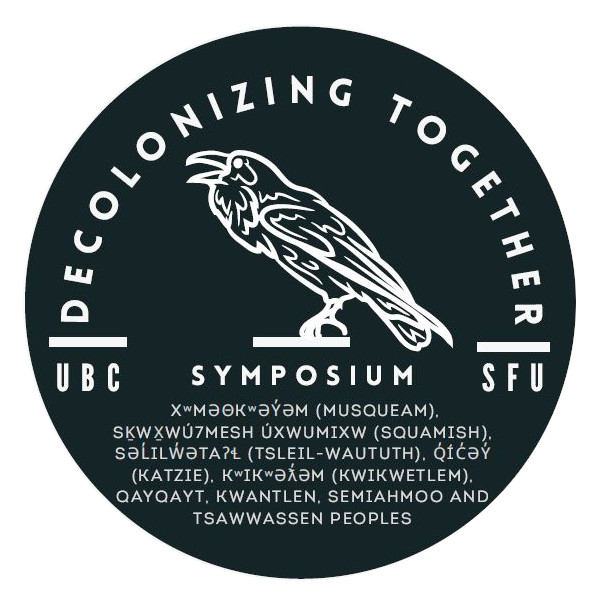- January 28, 2022: Teacher Educator and Staff Session
- October 22, 2021: Teacher Candidate Session
Click here to view the recordings of the symposium sessions
Speakers
October 22, 2021: Teacher Candidate Session
Mr. Brad Baker – Indigenous Education – Truth Before Reconciliation
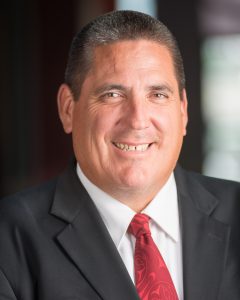 Mr. Baker will explore the idea of Indigenous education not only as a project aimed at improving educational outcomes for Indigenous students, but also as a matter of introducing some deep truths about colonisation and colonialism to non-Indigenous Canadians, and how this force has shaped our nation and our lives. As a k-12 educator and district principal, Mr. Baker brings a very valuable perspective to bear in this work and can link theory to practice in a way that will be most instructive for students enrolled in teacher education. His practical experiences in grappling with anti-Indigenous racism on systemic, cultural and personal contexts will also be of great value for non-Indigenous teacher educators as well.
Mr. Baker will explore the idea of Indigenous education not only as a project aimed at improving educational outcomes for Indigenous students, but also as a matter of introducing some deep truths about colonisation and colonialism to non-Indigenous Canadians, and how this force has shaped our nation and our lives. As a k-12 educator and district principal, Mr. Baker brings a very valuable perspective to bear in this work and can link theory to practice in a way that will be most instructive for students enrolled in teacher education. His practical experiences in grappling with anti-Indigenous racism on systemic, cultural and personal contexts will also be of great value for non-Indigenous teacher educators as well.
- Brad Baker is a member of the Squamish Nation and the District Principal of Indigenous Education for the North Vancouver School District. When he was hired in 1995, Mr. Baker was the first Indigenous educator hired by the North Vancouver School District. Several years later, in recognition of his service, he was awarded an Indspire award for Indigenous educational leadership in 2014, an outstanding accomplishment after less than a decade of teaching. He is currently completing an Educational Doctorate at UBC which focuses on decolonizing and Indigenizing schools, and improving educational outcomes for Indigenous students within the k-12 school system.
Dr. Michelle Stack – Ableism as an equity issue
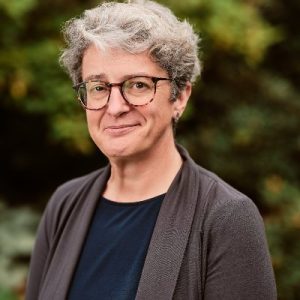
Professor Stack will invite the audience to think about the impacts of how people and the natural world are ranked into categories of productive/unproductive and worthy/unworthy. She will provide examples of how eugenics thinking is rooted in the connected structures of ableism and racism and continue to permeate education and healthcare. She will also discuss why a focus on people first language (e.g. a person with disabilities) is often challenged by disability rights scholars and activists who embrace their identity and use identity first language (e.g. a disabled person). The talk will focus on who and what we deem a problem and why. For example, are disabled and racialized children who are pushed out of school the problem or is the school the problem? Who frames and problem and how they frame it can determine if a child is expelled, criminalized or streamed in ways that can impact them through their lives. Dr. Stack will present alternative ways to think about what a good education is and could be through thinking about solidarities in a time of global crises.
- Dr. Michelle Stack is an Associate Professor at the University of British Columbia whose work is rooted in educational equity and disability studies. She is the co-editor of a book with Dr. André Mazawi, Course Syllabi in Faculties of Education Bodies of Knowledge and their Discontents, International and Comparative Perspectives, editor of Global University Rankings and the Politics of Knowledge and the inaugural winner of the UBC Public Humanities Award.
January 28, 2022: Teacher Candidate Session
Dr. Arlo Kempf – Race, Whiteness and Teacher Education
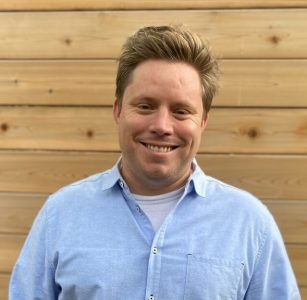
This talk will consider some of the ways in which racism, whiteness and white supremacy operate within teacher recruitment, teacher education, and teacher orientation to the profession, with close attention to various elements of teacher preparation, including recruitment, curriculum, and practice teaching. The session will also consider race and in-service teacher practice, as well as the ways in which effective antiracist work in education must consider the systemic, institutional, and individual operations of racism and white supremacy.
- Dr. Arlo Kempf is an Assistant Professor in the Department of Curriculum, Teaching and Learning at the Ontario Institute for Studies in Education of the University of Toronto. His research interests include anti-racism and anticolonialism in K-12 and teacher education; (critical) whiteness and white supremacy in education; teachers’ work and professional lives in critical perspective; and critical perspectives on neoliberalism in education. Arlo teaches in the areas of race and equity in education. His work has been published in various leading journals, and his sixth book, Troubling Reconciliation in Education Critical Perspectives (Co-edited with Sandra Styres), is forthcoming in 2022 with the University of Alberta Press. Arlo is Editor of the journal Curriculum Inquiry, and is Book Series Editor (with Nina Bascia, OISE/UT; Denisha Jones, Sarah Lawrence College; and Rhiannon Maton, SUNY Cortland) of the Routledge Book Series: Teachers’ Work and Teaching in Critical Perspective.
Carolyn Roberts – Decolonizing Education
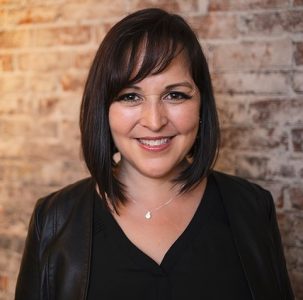
In this highly interactive seminar, we will be unpacking how the Western colonial education system has shaped and formed our understanding of the colonization of the Canada, including the impacts it has had on Indigenous people. Within these conversations it will give you the opportunity to deepen your understandings of decolonial practices in the classroom and how to engage in difficult conversations. This workshop will plant seeds for you to become an advocate for honouring and supporting Indigenous, Black and people of colour in the classroom.
- Carolyn Roberts uses her voice to support Indigenous resurgence through education. She is a Coast Salish woman belonging to the Baker family through her mother from the Squamish Nation, her father is from the Kelly Family from the Tzeachten Nation. Carolyn is an Indigenous academic who holds two degrees from UBC, a Masters in Aboriginal Education and Leadership and a Bachelors of Education. She also holds a Bachelors of Jazz Studies from Capilano University. Currently she is a Doctoral Student at Simon Fraser University in the eTAP Program. She has been an educator and administrator for over 20 years and is currently a Faculty Member and Indigenous Pedagogies Teaching Fellow in the Department of Education at Simon Fraser University.
- Carolyn’s work is grounded in educating about decolonization. She works with pre-service teachers to help build their understandings in Indigenous history, education, and ancestral ways of knowing, to create a brighter future for all Indigenous people and the seven generations yet to come.
